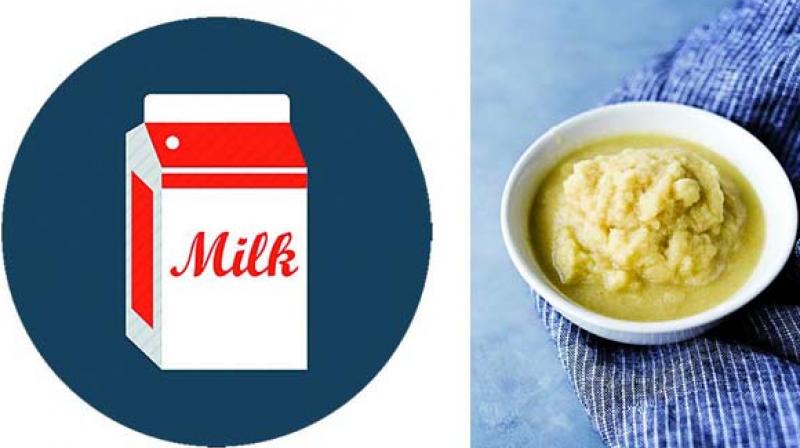Inadequate regulations help adulteration thrive
Accused can be fined for repeated violation with three cases booked.

Hyderabad: Adulteration of food items is becoming a major racket with no rigorous punishment in place legally. The IPC does not have any direct section to penalise the accused arrested in adulteration of substance.
Such case are incorporated into Section 420 (cheating), 336 (willful negligence), 273 (sale of noxious food or drink) of the IPC. Bailable cases booked against adulteration are forwarded to the local magistrate who in turn directs the police to issue warning under Section 41(A), but there is no less judicial remand.
The only way the accused can be dragged to jail is if he or she is a regular offender. The law, however, requires that three cases need to be booked against the accused to implicate them under Prevention Detention Act.
 Sauce Adulteration
Sauce Adulteration
In the recent adulterated case involving production and sale of oil exposed at RK Puram, where tons of pig’s fat oil was confiscated, the accused, Mithilesh Kumar, was arrested by Rachakonda police. The accused, however, was within two days bailed out.
From the GHMC end the corporation is authorised to issue closure notice and impose a compounding fee.
In case of serious crime, the corporation is authorised to prosecute the accused under GHMC sections, however no judicial remand.
Mr Limba Reddy, DCP, Task Force, explained, “Adulteration is of two types. In the first case, sub-standard ingredients are mixed while in the second, noxious items are added. Such cases are booked under Sections 272, 273 (8 Sale of noxious food or drink.) of IPC. The maximum punishment is six months judicial remand. However the state government has now proposed to amend the act, those caught in adulteration cases will be put to life in prison.
The Centre’s Food Safety and Standards Authority Act prescribes (under Section 59), the punishment for accused caught in food adulteration as a minimum jail term of seven years and maximum of life term in addition to a fine of '10 lakh in cases where the adulteration results in death of persons. In cases where it does not result in any physical injury, the punishment would be six months imprisonment and a fine up to Rs 1 lakh. However, the power to impose this section lies with the health food inspectors. The city has not seen such cases where the accused has been booked under FSSA act.
Milk mixed with chemicals dangerous
Milk is a common target for adulteration. An essential part of the diet, milk is consumed on an everyday basis.
“If adulterated milk is consumed for a long period, it could result in toxic elements entering the body. It will lead to harmful effects on the liver and even the brain as the blood flow becomes contaminated,” said nutritionist Dr Deepa Agarwal.
Synthetic material added to milk is very harmful and will remain in one’s system for a long time. Unprocessed milk is hailed as a solution to adulterated milk but no company producing milk actually sells it without processing it,” says Dr Usha Sree of Care Hospital.
According to Dr Sudharshan Rao, senior scientist at the National Institute of Nutrition, one can never get one’s money’s worth while buying milk. “The label ‘whole milk’ means that the milk should contain about six per cent of fat. Anything less than that is considered substandard. There are many rules to be followed in production and storage of milk. If it is not stored correctly and hygienically, milk will go bad.”
Nutritionists recommend the purchase and regular use of a lactometer to test adulteration of milk at home.
If the lactometer floats on the milk, it is pure, and if it sinks, it is adulterated. It is also advised to keep a look out for synthetic milk that is mixed with chemicals and turns a pale yellow colour when heated.
Sawdust added to tea powder
The Begum Bazar police has booked cases against vendors of tea powder for adulteration. Unbranded tea powders were found to contain wood shavings and sawdust mixed with the tea.
Inspector B. Srinivas Rao of the Begum Bazar police said that a police team and GHMC food inspectors raided a tea powder godown in Begum Bazar run by one Vishnu Gopal Tiwari, under an agency called Sreenath.
“The accused has been selling unbranded non ISI marked tea powder that was found to be adulterated. He has been procuring high quality tea powder from different states and mixing the same with low quality tea. The sample was also found to contain wood shavings. Brands of tea powder such as Utsav Gold, Raja and Borsila were confiscated."
A case under section 272 (adulteration of food or drink intended for sale) and 336 (act endangering life or personal safety of others) has been booked against the adulterator.

